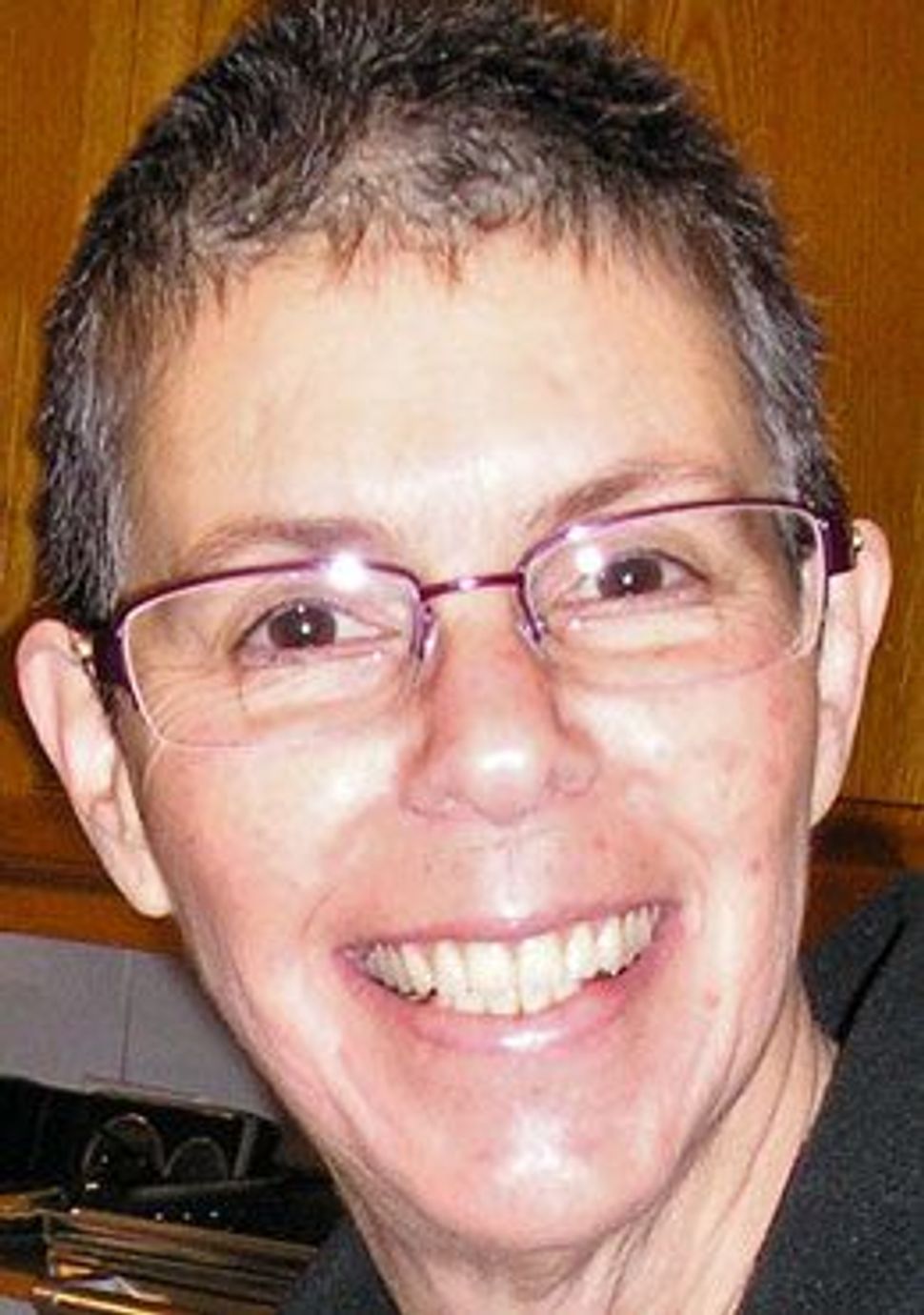Marilyn Henry, Advocate for Survivors

Fighter: Henry became an expert in the struggle to retrieve stolen art. Image by COURTESY OF THE HENRY FAMILY
Marilyn Henry was the quintessential old-school girl reporter — more Hildy Johnson in “His Girl Friday” than Brenda Starr. Her laser-sharp brain could cut through the most complex philosophical, financial, legal, religious and arcane data to get to the heart of a story. Her two masterworks were “Twice Stolen,” an almost-finished book project, aborted by her death, about looted art from the Holocaust era, and “Confronting the Perpetrators: A History of the Claims Conference,” which tells about the organization responsible for negotiations and allocations of restituted funds and property.
Henry died of cancer on March 1, four days shy of turning 58. She was smart and deep, and no naïf. She was feisty enough to hold her own with Secretary of State Hillary Rodham Clinton, or to work with then Manhattan District Attorney Robert Morgenthau, who praised her upon her death as “a remarkable person and a great reporter.” She unraveled financial puzzles such as the $1.25 billion Swiss bank settlement, and understood and remembered the differences between the Goodwill Fund, the Hardship Fund, the Article 2 Fund, the Ghetto Pension fund and myriad other funds, as well as details about restitution and reparations for Holocaust survivors that confused the rest of us. She cajoled major players in negotiations to explain complex facts to her, figured out the story these facts told, and explained it to the rest of us.
Last spring, Henry chose to pay a farewell visit to Los Angeles to see friends and family and to deliver a superb lecture on stolen art. Despite her illness, she was in full control of her subject, able to trace artwork after artwork through each stage of “ownership,” through each cover-up and attempt to obfuscate the origin of major artistic works. She showed the cooperation that took place between Nazi looters of Jewish-owned art, “distinguished” gallery owners, certain private collectors and the prestigious art museums that, at best, turned a blind eye to the source of the property they wanted to control and exhibit. She made her case with understatement and without sensationalism. Only in the end did one realize how sensational her work was.
Henry was a fierce advocate for the survivors. In article after article, in media outlet after media outlet — The Jerusalem Post, The New Jersey Jewish Standard, the Forward, the JTA — she demanded accountability from anyone who shortchanged them. In 2003, she called the American Jewish community to task: “The question is why American Jews… don’t help care for the needy Nazi victims among us. As a community, we faithfully honor the memory of the victims of the Holocaust, but seem indifferent to the welfare of the survivors…. Yes, the Europeans have a profound obligation to Nazi victims. But the American Jewish community also has debts to survivors — and not on moral or compassionate grounds alone. As a group, Holocaust survivors, whether rich or poor, have been devoted donors during the last 50 years to Jewish communal causes. When they are in need, the community is obliged to respond.”
Henry also served as the rebbitzen of the synagogue of her husband, Rabbi Shaman Engelmayer, in Cliffside Park, N.J. In that spirit, on August 30 she sent an e-mail to her congregants, and to a small group of friends and colleagues, to inform them that she and her family had made an important decision about her life and how it would end. They had decided to stop her cancer treatment. Henry’s choice to enter a hospice was a noble example of how she always did the right thing because it was the right thing to do. She and Engelmayer wrote, “Cancer was a full-time occupation for us for several grueling months. Now we are eager to stop allowing this disease to dominate our lives, consume our thoughts and be the primary topic of every conversation. We are eager to live — to enjoy — our normal lives.”
It was an inspirational note, a gentle way to say goodbye. She showed her friends how end-of-life issues are not decided at the last moment. Always an advocate of quality of life, she wanted to spare her family the agony of watching her try, at any cost, to hang on to a life without any quality in it. She chose to show us all how to die with grace and dignity — the way she believed the survivors should pass: cared for with love and surrounded by serenity.
A journalist to the end, she wrote an article about that decision in The Jerusalem Post on November 6, 2010.
“I am a lucky woman,” she wrote. “I feel good and I look great. And although in grim circumstances, I know I have choices. I will choose a hospice, because as the Torah commands us in Deuteronomy (30:19), I choose life.”
She always did that, and lived it to the fullest. Her memory is a blessing.
A memorial service for Marilyn Henry will be held on at 11 a.m. April 3 at Temple Israel Community Center — Congregation Heichal Yisrael, 207 Edgewater Road, Cliffside Park, N.J.
Contact Michael Berenbaum or Jeanette Friedman at [email protected].




















